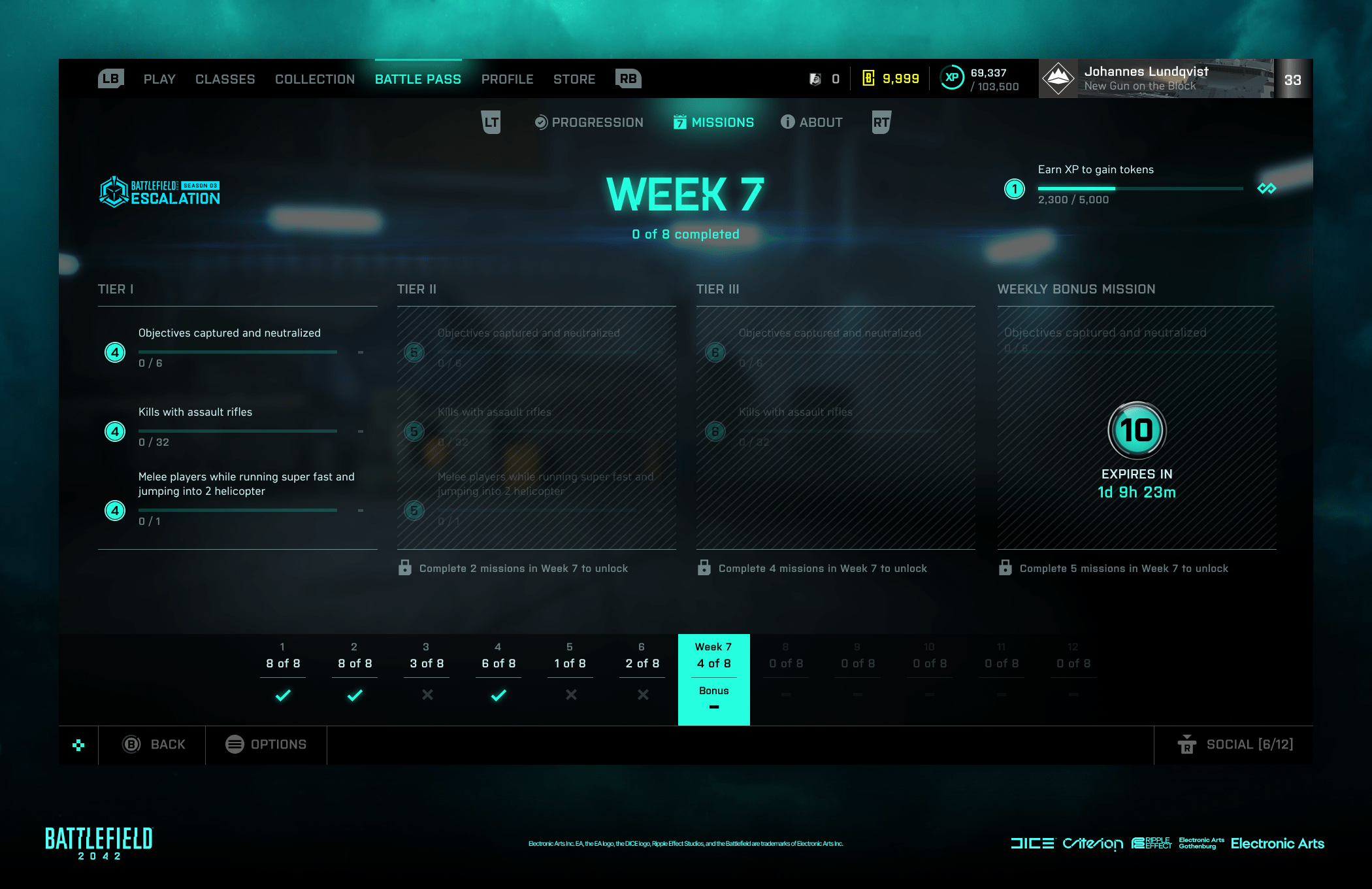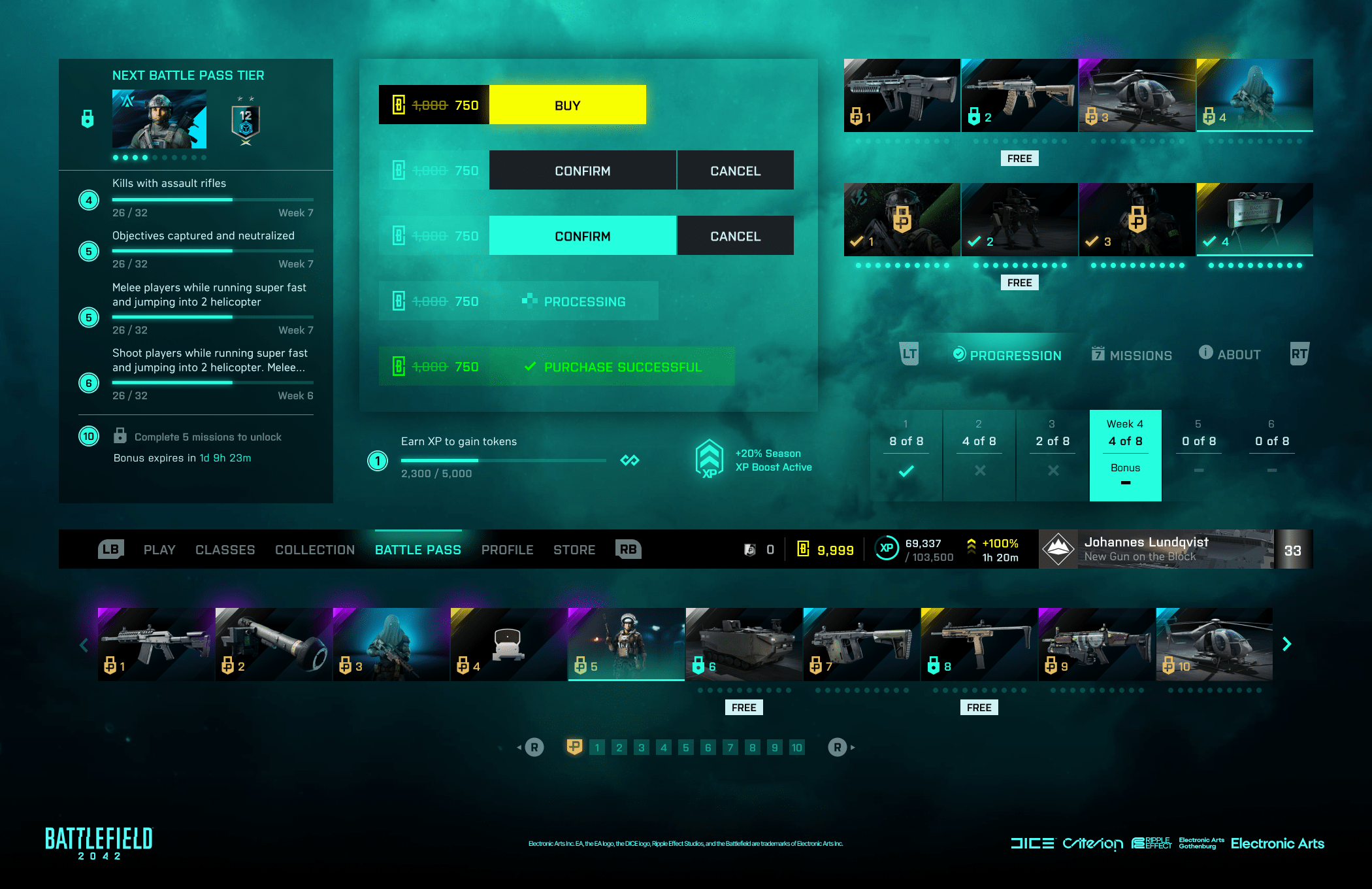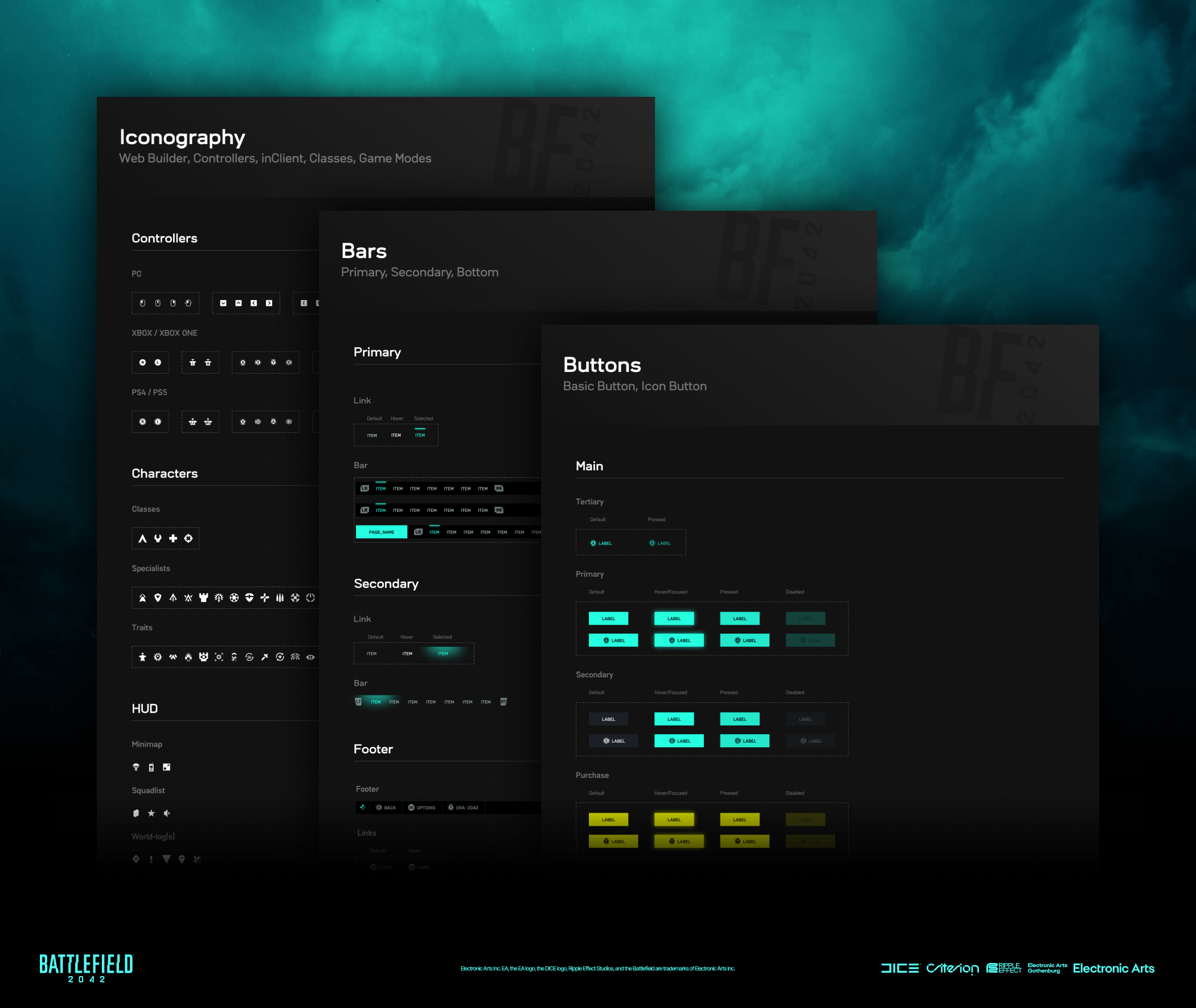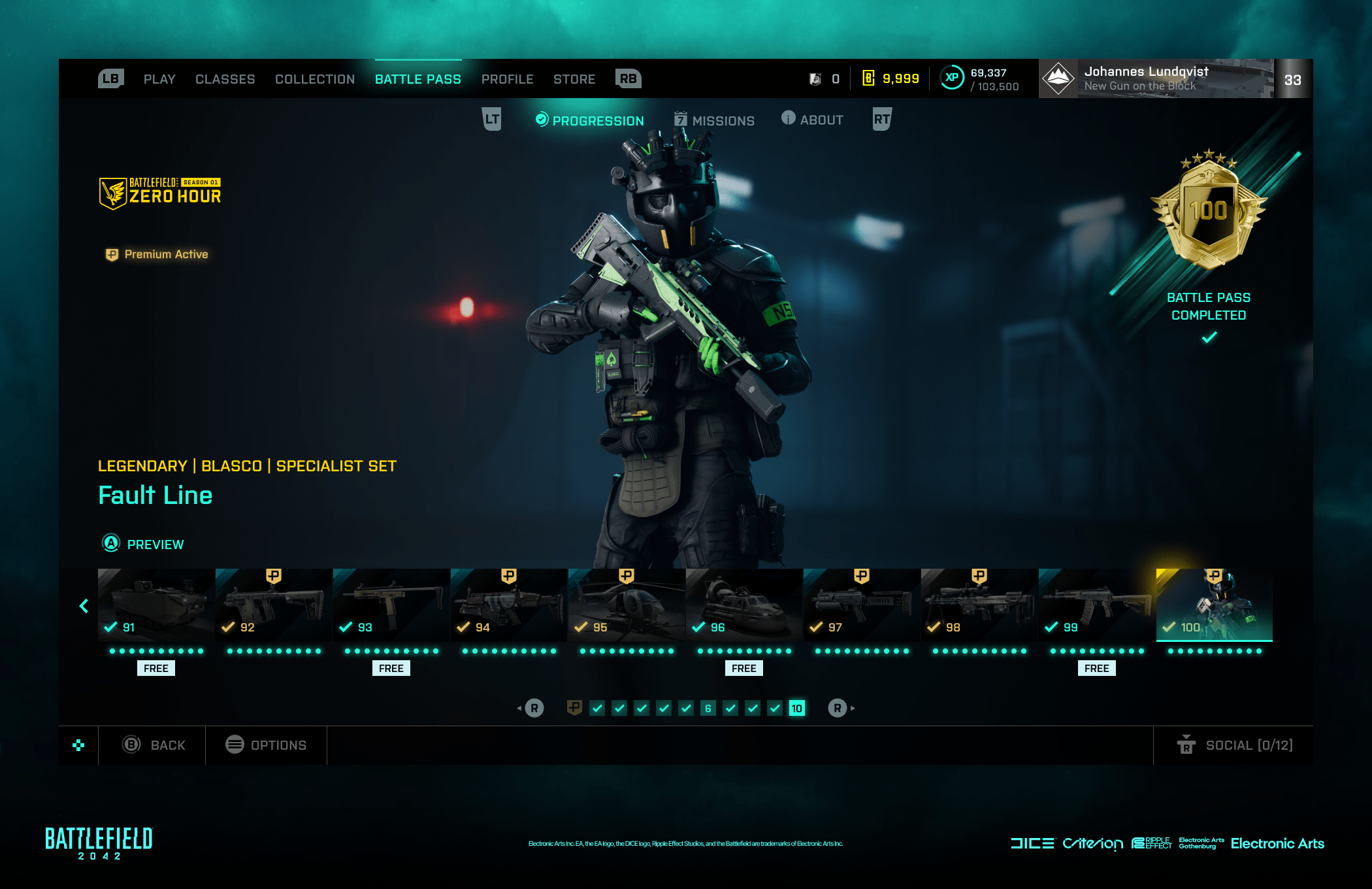
Overview
Increasing engagement and retention through monetization in Battlefield 2042
The Battle Pass is a dual-purpose system, boosting player engagement and acting as a monetization strategy to increase cash flow during the game's live service. It’s a progression system where players earn points by completing objectives and advancing on a reward track with free and premium levels. The premium pass offers exclusive rewards to paying players, encouraging deeper engagement. Additionally, the Battle Pass helps sell different versions of the game, with some exclusive editions including the premium pass, to offer a sense of exclusivity and enhanced value.
To comply with my non-disclosure agreement I have excluded confidential information in this case study. The presented information is my own and does not necessarily reflect the views of the client.
Year
2019-2023
Client
Electronic Arts ranks among the world's leading game publishers, with DICE as one of their most successful studios. DICE is renowned for creating popular franchises such as Battlefield, Mirror's Edge, and Star Wars Battlefront.
Role & Responsibilities
I worked in a cross-functional team, with game designers, developers and artists, to launch the first Battle Pass system for the Battlefield franchise. I contributed to competitive research, concept development, designing prototypes, and pixel-perfect deliverables.
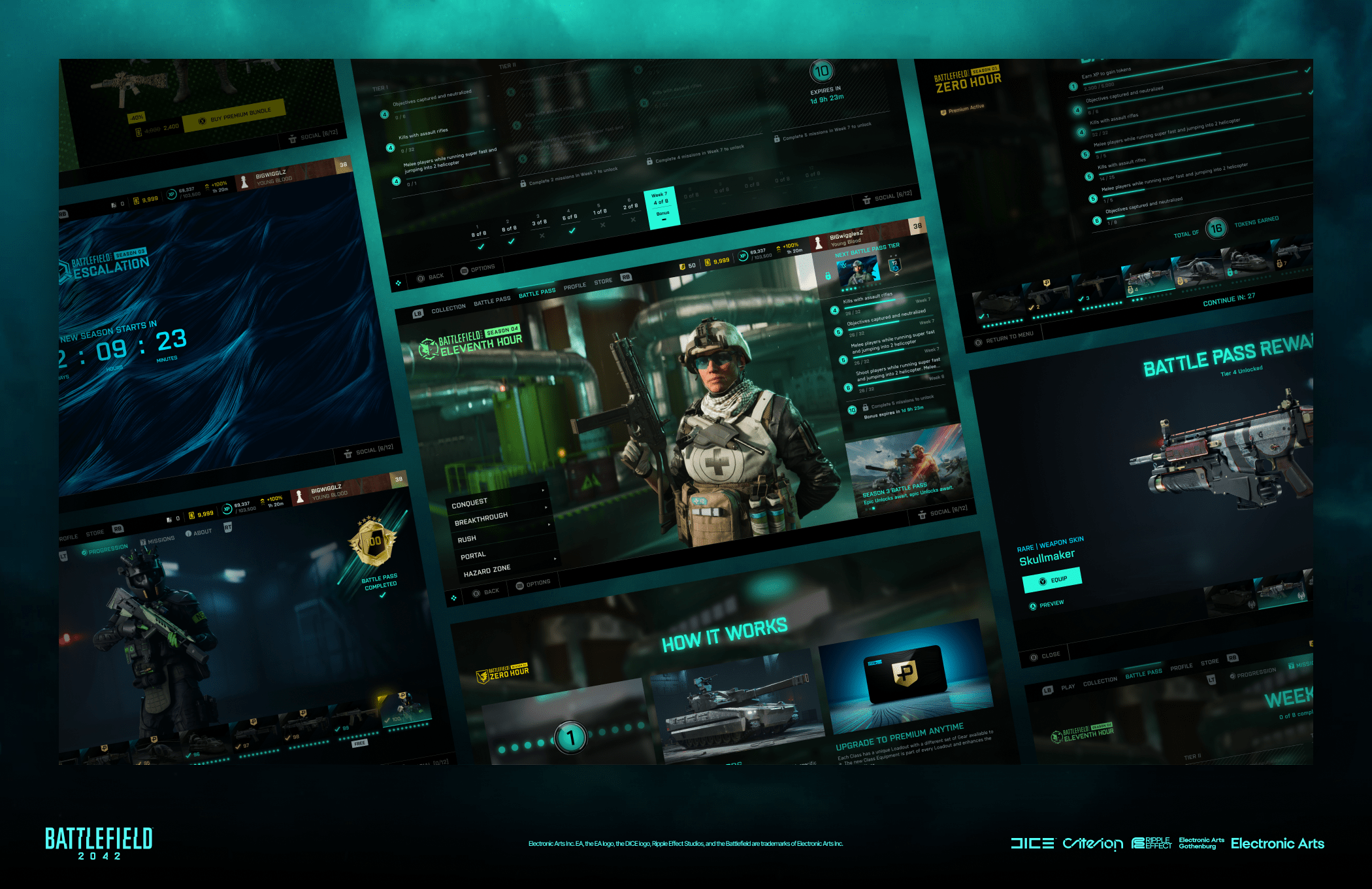
Challenge
Balancing player value and revenue
The Battlefield franchise is one of the longest-running and most prominent online first-person shooters available. With the latest installment, Battlefield 2042, the studio aimed to improve long term player engagement while also exploring new revenue strategies to support sustained player engagement throughout the game's live service.
As player expectations on long-term support, regular content updates, and game improvements post release have surged alongside the popularity of free-to-play games, the studio sought new avenues to meet the increasing demands of the ever evolving gaming landscape.
Given that Battlefield 2042 was a full price game, the team faced the challenge of designing an engagement system that could offer added value to players and encourage cross-purchases post launch. Central to this system was the implementation of fair and transparent practices, as simply adopting strategies from free-to-play games without consideration could be perceived as predatory, given that players had already paid for the game.
"How might we design a progression system that enhances engagement, encourages cross-purchases, and maintains a fair gameplay and monetization model?"
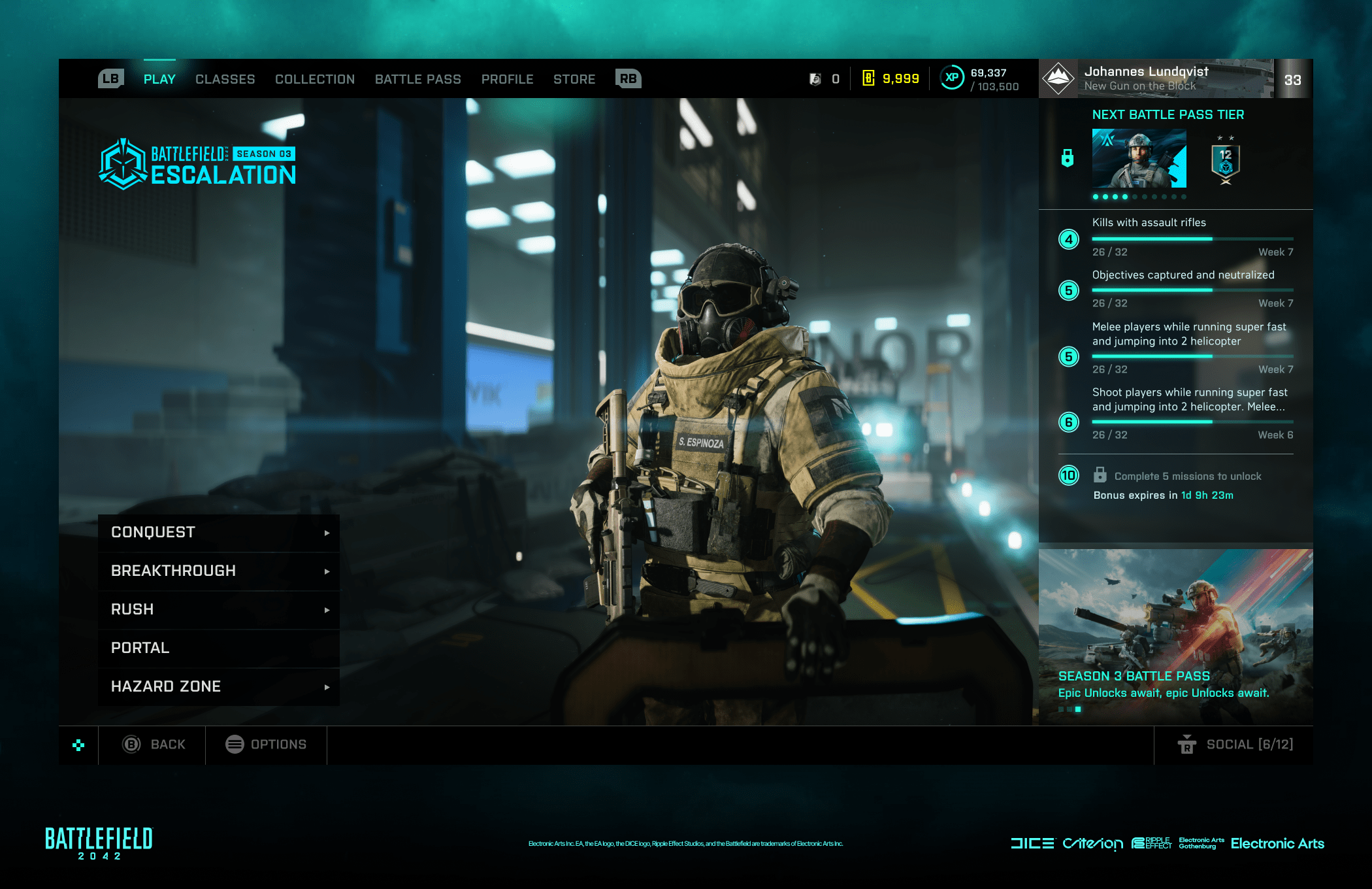
Research
Leveraging cross-studio insights for strategic design decisions
Throughout the project, I used various methods to gather insights and guide the design process, each offering valuable discoveries.
I conducted stakeholder interviews to understand goals and expectations. A competitive analysis gave me a comprehensive understanding of competitors' design choices, highlighting strengths and weaknesses while identifying opportunities for differentiation. I interviewed design teams at other Electronic Arts studios, with experience from releasing similar systems, to take part of their learnings.
User journey mapping helped me establish key touch points of the flow and uncover potential areas for pain points and improvements. I combined this with Social Media Listening where I monitored forums and social media channels discussing the competition to gather unfiltered opinions and sentiments to reveal areas for improvements.
01 Ensure significant content variation between tiers
02 Prevent pay-to-win imbalances by avoiding gameplay-enhancing rewards as paid content
03 Prioritize fairness and rewarding challenges ahead of profit
04 Enable achievable and accessible progression for players of varying skills and playstyles
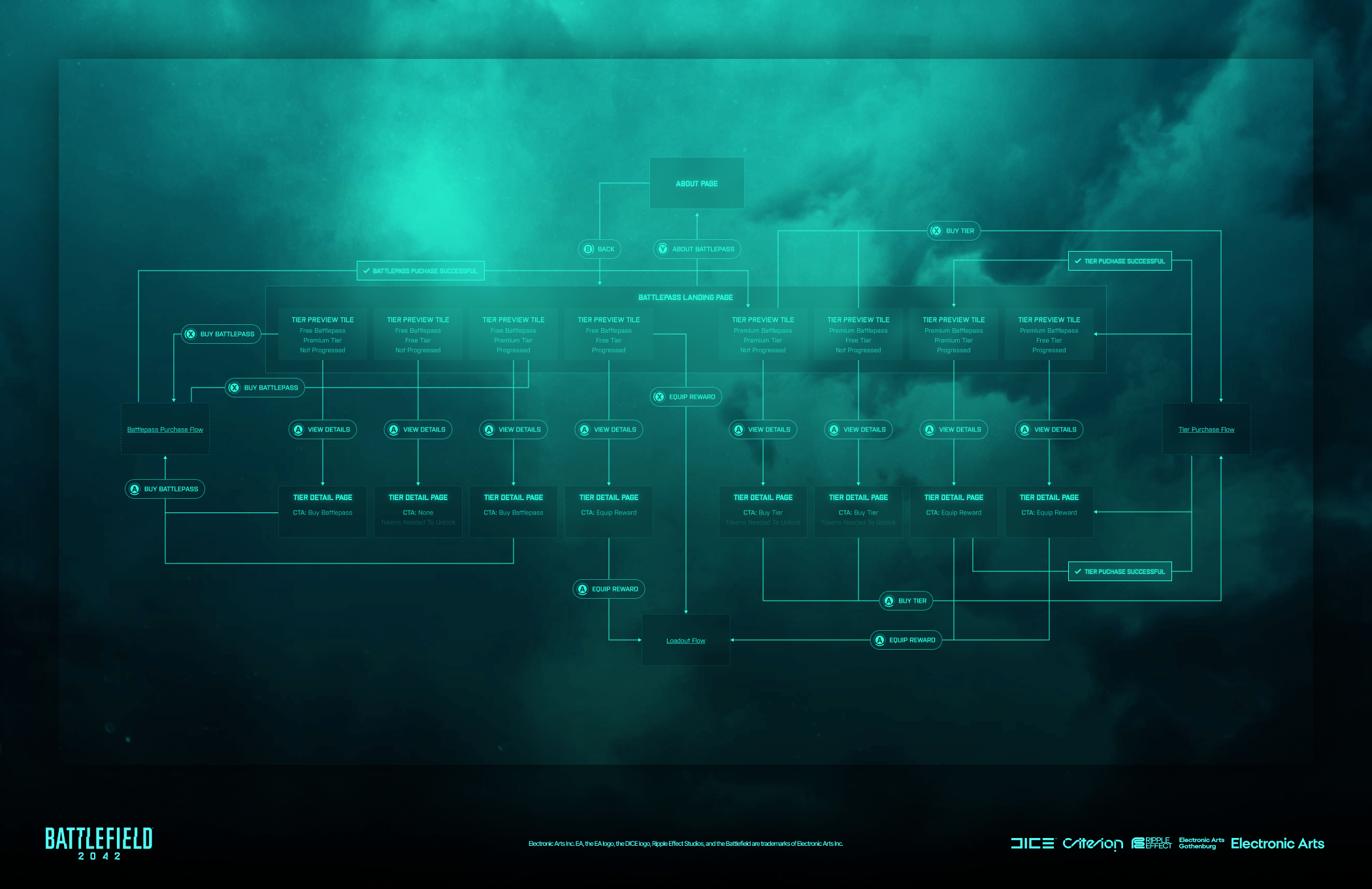
Process
Refining the user journey through iterative design
I collaborated closely with engagement and economy designers to establish the core mechanics for progression. This enabled me to identify key touchpoints and tasks within the game loop. With these insights at hand, I designed state machines that outlined the required interaction patterns and system states throughout the flow, allowing engineers to establish the flow's foundation before the detailed visual designs were complete.
With the information architecture outlined I decomposed the overarching structure into smaller systems allowing me to understand what elements I needed for each part of the experience. Prototypes were continuously tested and evaluated internally to address navigational shortcomings and visual inconsistencies.
This iterative design approach continued until the release, when the UX Research team conducted in-depth one-on-one interviews with actual users of varying levels of experience and spending habits. In turn, this research provided valuable insights that helped us refine and enhance multiple aspects of the design during the live service.
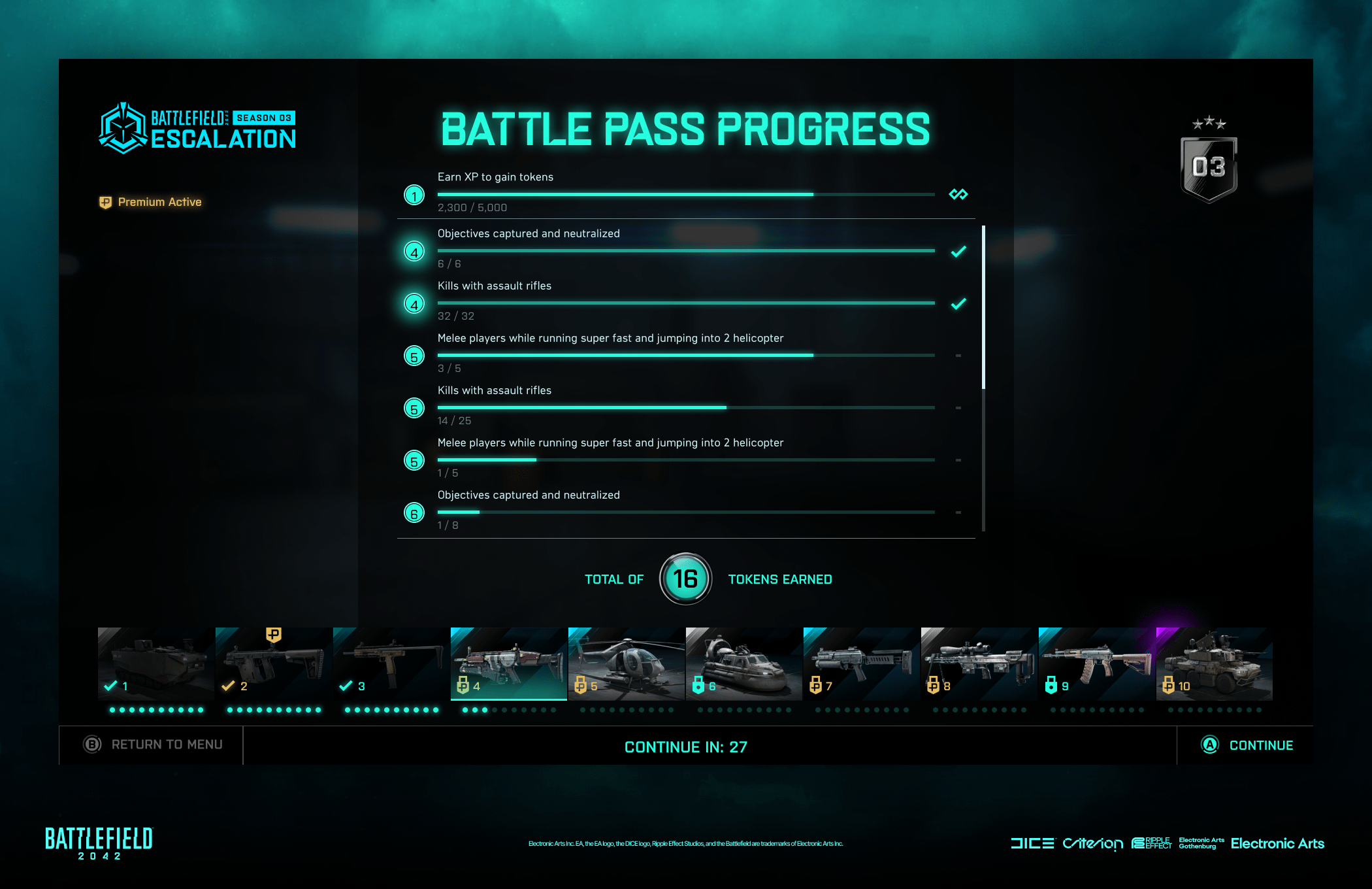
Outcome
From controversy to success
Initially the Battle Pass sparked a range of opinions, with some players enjoying the added content and progression system, while others criticized the monetization practices, especially given quality concerns of the game upon release.
However, as the overall game improved, the Battle Pass gradually gained acceptance. Players welcomed the unconventional approach to allow players to complete challenges at their own pace rather than under strict time constraints. This player-centric approach proved to reduce stress and fostered a friendlier gameplay environment. Community members praised the unique vibe that emerged at the end of each season when they saw an unexpected shift towards more playful and relaxed gameplay, as a significant portion of the players focused on completing challenges over winning matches.
In terms of game longevity and revenue generation, the introduction of the Battle Pass was pivotal, exceeding initial projections and extending the game's live service lifespan significantly.
